932124
SF3-TRZ
≥99% (HPLC)
Synonym(s):
2-(9,9′-Spirobi[fluoren]-3-yl)-4,6-diphenyl-1,3,5-triazine
Sign Into View Organizational & Contract Pricing
All Photos(2)
About This Item
Empirical Formula (Hill Notation):
C40H25N3
CAS Number:
Molecular Weight:
547.65
MDL number:
UNSPSC Code:
12352005
NACRES:
NA.23
Recommended Products
grade
sublimed grade
Quality Level
Assay
≥99% (HPLC)
description
3.44 eV (EG: HOMO-LUMO gap)
solubility
toluene: soluble
Orbital energy
HOMO -6.54 eV
LUMO -3.10 eV
Application
SF3-TRZ can also be utilized in devices such as organic photovoltaic (OPV) devices and organic field-effect transistors (OFETs). In OPV devices, it can serve as an electron transport or electron-blocking material, assisting in efficient charge extraction and collection. In OFETs, SF3-TRZ can act as an electron-transport layer, enabling the smooth flow of electrons in the device. It can be used as an electron-transport layer in organic light-emitting diodes (OLEDs), facilitating the efficient injection and transport of negative charges (electrons) from the cathode to the emissive layer.
Use as TADF Host for Green TADF OLED, EQE of 20.6%.
µ0 (hole) : ~9 × 10−9 cm2 V−1 s−1
µ0(electron): ~4 × 10−5 cm2 V−1 s−1
µ0 (hole) : ~9 × 10−9 cm2 V−1 s−1
µ0(electron): ~4 × 10−5 cm2 V−1 s−1
Storage Class Code
11 - Combustible Solids
WGK
WGK 3
Flash Point(F)
Not applicable
Flash Point(C)
Not applicable
Choose from one of the most recent versions:
Certificates of Analysis (COA)
Lot/Batch Number
Don't see the Right Version?
If you require a particular version, you can look up a specific certificate by the Lot or Batch number.
Already Own This Product?
Find documentation for the products that you have recently purchased in the Document Library.
Lin-Song Cui et al.
Nature communications, 8(1), 2250-2250 (2017-12-23)
Organic light-emitting diodes have become a mainstream display technology because of their desirable features. Third-generation electroluminescent devices that emit light through a mechanism called thermally activated delayed fluorescence are currently garnering much attention. However, unsatisfactory device stability is still an
Our team of scientists has experience in all areas of research including Life Science, Material Science, Chemical Synthesis, Chromatography, Analytical and many others.
Contact Technical Service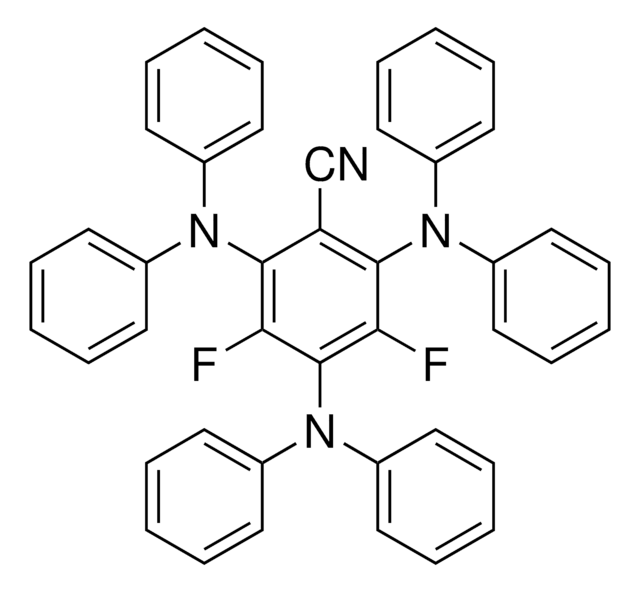

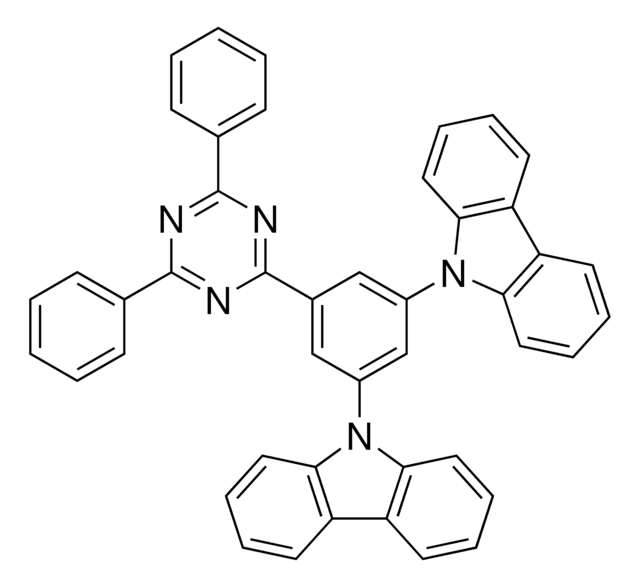
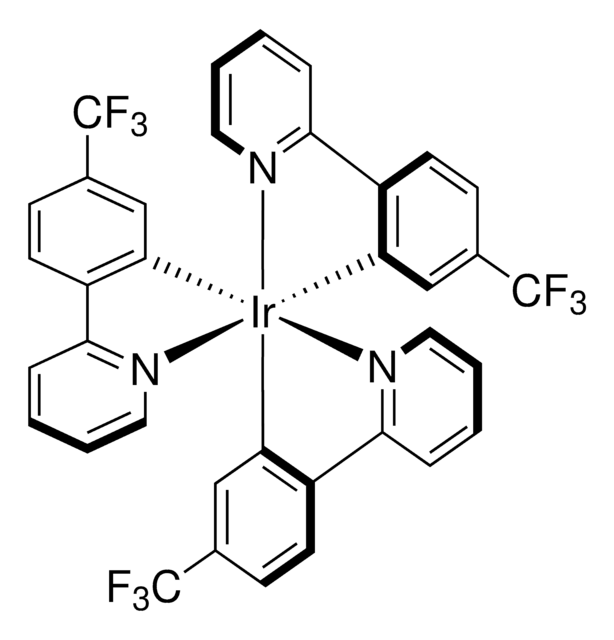
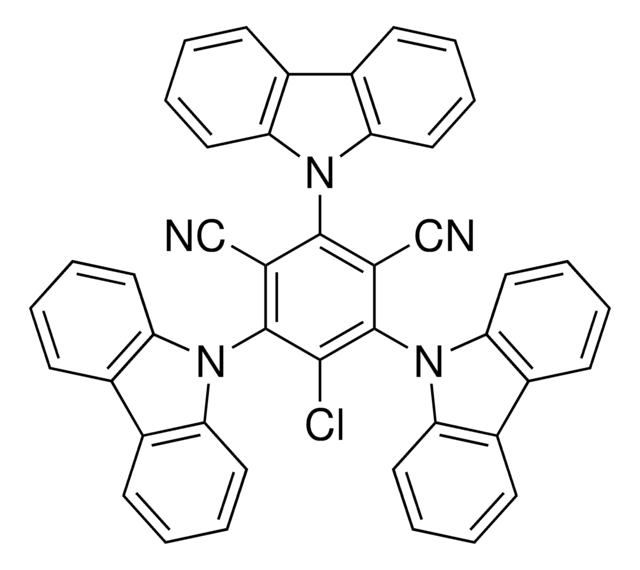
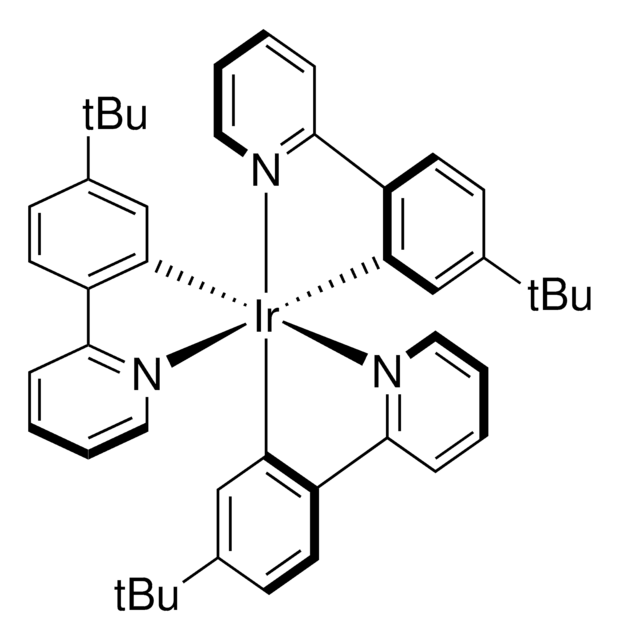
![[Ir(dtbbpy)(ppy)2]PF6](/deepweb/assets/sigmaaldrich/product/structures/158/329/2544d673-d267-4aa1-8f46-2652aad4bfa0/640/2544d673-d267-4aa1-8f46-2652aad4bfa0.png)
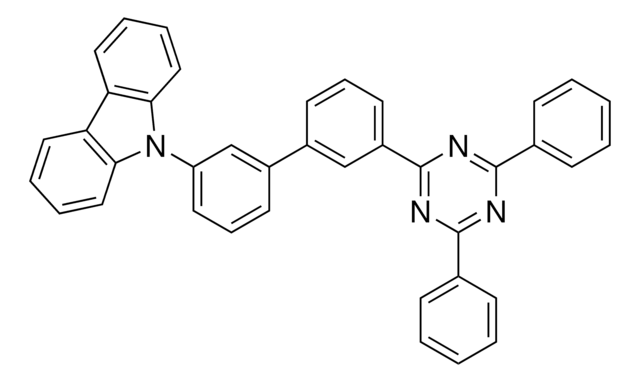

![Ir[dF(t-Bu)-ppy]3](/deepweb/assets/sigmaaldrich/product/structures/254/294/d0fb19e5-05b2-4c1b-990b-a99fa60b3e73/640/d0fb19e5-05b2-4c1b-990b-a99fa60b3e73.png)